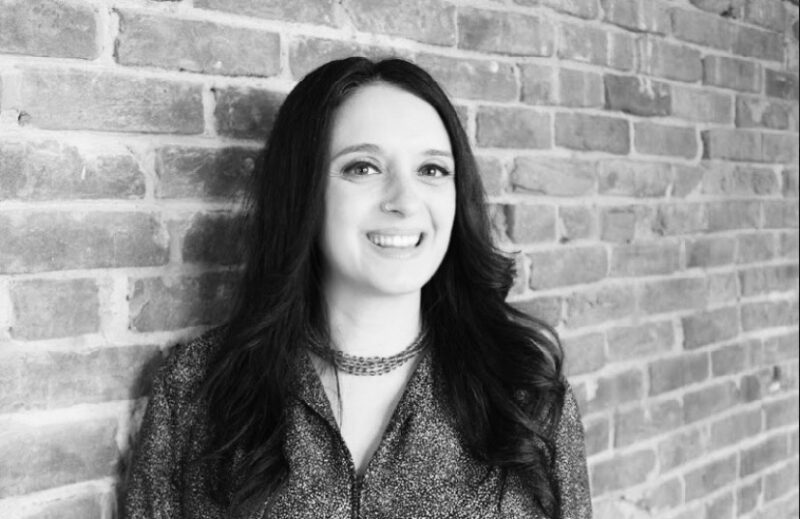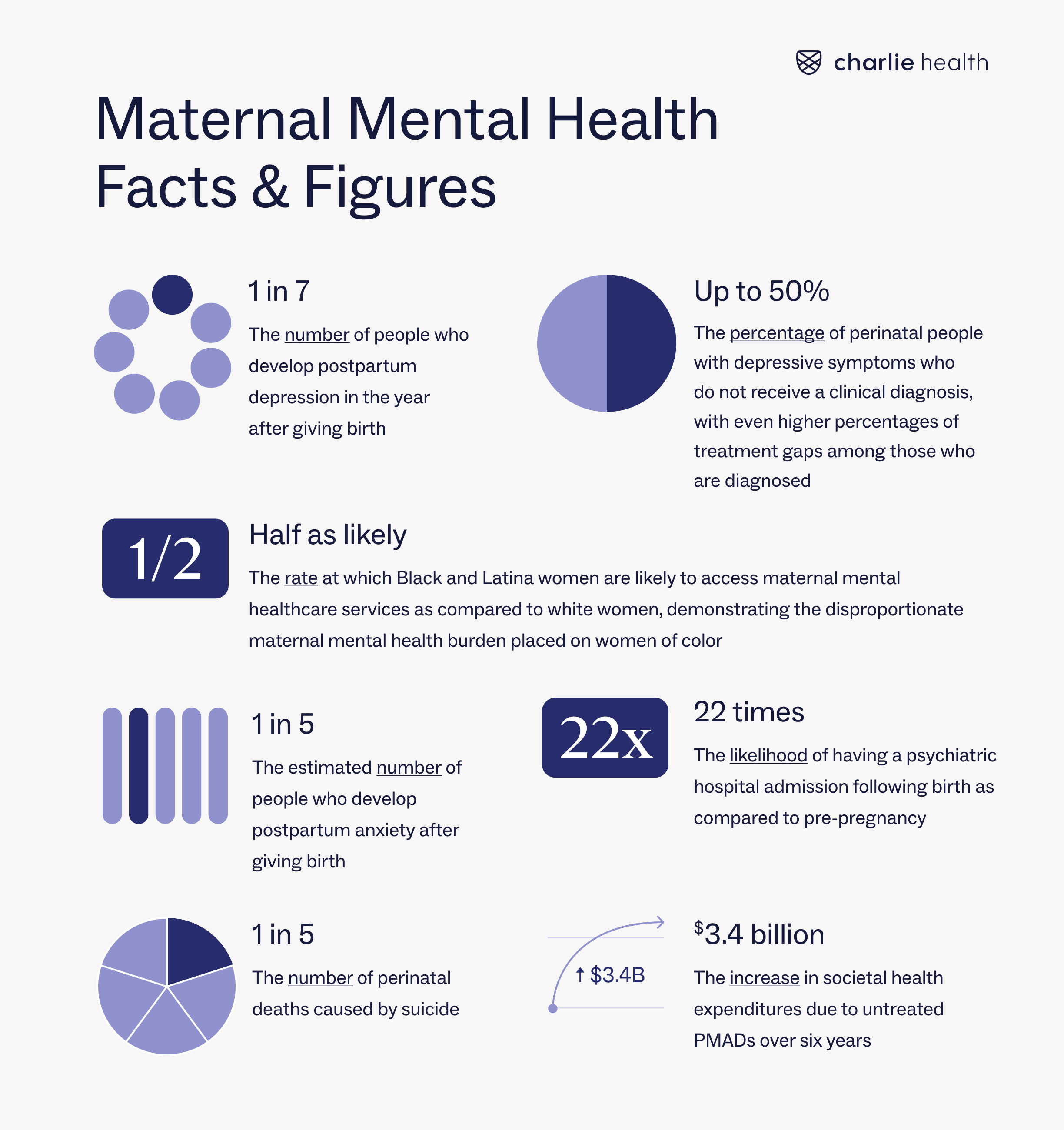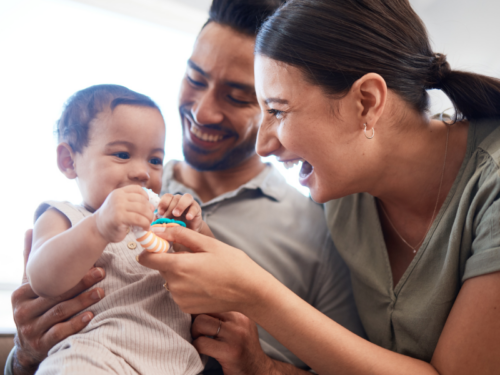
Table of Contents
How Charlie Health Is Addressing the Maternal Mental Health Crisis

Written By: Courtney Barber, MHC

Clinically Reviewed By: Dr. Don Gasparini
December 29, 2023
5 min.
Perinatal mental health conditions are common but often go untreated, especially among marginalized populations. Keep reading to see how Charlie Health aims to fill this gap and address the maternal mental health crisis.
Learn more about our Clinical Review Process
Table of Contents
Three years after setting out to address the youth mental health crisis, Charlie Health, the leading provider of virtual Intensive Outpatient Programming (IOP), is taking steps to address another national mental health crisis—the maternal mental health crisis, which affects mothers, babies, and families. The company’s recently launched maternal mental health program provides accessible, curated care for perinatal and postpartum clients.
I am a mental health provider with over 20 years of perinatal care experience, having worked as a certified labor assistant, postpartum doula, postpartum nursing technician, and (most recently) clinical mental health counselor specializing in perinatal mental health. This past October, I started working as a group facilitator at Charlie Health, and after learning that the company was piloting a perinatal mental health group, I jumped at the chance to work as a facilitator.
When completing the company’s perinatal mental health training, I was moved by its sensitive and intersectional approach to prenatal and postpartum mental healthcare. I’ve also come to see firsthand how Charlie Health guarantees comprehensive and accessible care from home—an approach uniquely suited to perinatal and postpartum clients. Keep reading for an inside look into how Charlie Health is working to address the maternal mental health crisis, plus some of the most alarming details of the crisis itself.

Check out our maternal mental health program
Personalized, accessible care with new parents who get it.
A look at the national maternal mental health crisis
I would love to say that perinatal mental health issues have decreased since I started working in healthcare, but unfortunately, these issues have only become more critical in recent years. In 2022, the Centers for Disease Control and Prevention (CDC) released an updated report on perinatal mental health in America. The report indicated that underlying mental health conditions are now the leading cause of maternal death. Suicide, in particular, is the leading cause of maternal death in the first year postpartum, data shows.
In June of the same year, the White House released a blueprint for addressing the maternal mental health crisis, specifically raising awareness of mental healthcare disparities and discrimination. For example, about a quarter of people will develop a perinatal mood or anxiety disorder, but these conditions are often undiagnosed and untreated, especially among marginalized populations.

Charlie Health’s approach to the maternal mental health crisis
As with the rest of its fully virtual IOP, Charlie Health offers maternal clients high-acuity care from the comfort of home. The program incorporates a range of evidence-based therapies into individual and family therapy, as well as supportive group sessions. In my experience, what sets Charlie Health apart in its efforts to address the maternal mental health crisis are its supportive groups and accessible care model. Keep reading to learn more.
Offering hope and combating shame with perinatal groups
My experience facilitating perinatal groups has been overwhelmingly positive, with the real magic stemming from client connections. In groups, birthing parents can speak openly about common themes, like postpartum hormone and body changes, coping with relationship stressors, and learning to care for a baby while caring for one’s mental health. The level of validation, kindness, and compassion toward peers I witness regularly is amazing. Seeing young mothers checking each other’s self-criticism and building each other up is a beautiful thing.
“I think it’s easy for new moms to feel like they’re on the backburner because now everyone’s focus is on this new, beautiful baby, but you and your mental health still matter,” said Dejah J., an alum who received postpartum depression treatment at Charlie Health. “Your body just went through the biggest change of its life, hormones are all over the place, and your life has changed forever—it’s okay to struggle when that happens, and it’s important to reach out if you think you’re dealing with postpartum depression or something else. There’s no shame in needing help as a mom.”

How Dejah J. Managed Postpartum Depression With Charlie Health
Charlie Health Editorial Team
It is particularly striking that Charlie Health’s perinatal groups consist of young people who are mainly under thirty years old. As a clinician and healthcare professional of many years, this brings me a sense of hope. If our young parents from diverse parts of the country can support each other, inspire each other, and have each other’s backs even while navigating the intense pressures of new parenthood and mental health diagnoses, the future looks hopeful. That is, if families can access the support they need.
Making maternal mental healthcare accessible
There can be many barriers to receiving appropriate perinatal mental health care. Living in a rural area, out-of-pocket costs, transportation, and a mounting mental healthcare provider shortage are just some of the reasons new parents don’t always get the care they desperately need. Charlie Health aims to fill that gap, as data shows that telehealth, including virtual mental healthcare, increases access to potentially life-saving care. This especially matters to postpartum primary caregivers who may not be able to leave home easily because they are responsible for their child (or children).
Dejah, for example, struggled with postpartum depression for close to a year without treatment due to provider shortages in her area. “I was feeling helpless, like I couldn’t keep going. I’d known for a while that something wasn’t right with my mental health, but because I live in a rural area where you have to wait six or seven months to see a provider, I didn’t get help until Charlie Health,” she explained.
With the help of Charlie Health, Dejah was able to effectively address her postpartum depression. “I’m able to enjoy parenting now; it’s not as scary or depressing as it used to be,” she said. “I always used to feel like I wasn’t good enough as a parent, but now I know that I’m trying to be the best mom I can be. My daughter and I are growing together, and that’s about the best you can do.”

Maternal mental healthcare at Charlie Health
If you or a loved one are struggling with perinatal or postpartum mental health issues, Charlie Health is here to help. Charlie Health’s virtual Intensive Outpatient Program (IOP) includes an accessible, curated maternal mental health program for perinatal and postpartum clients. Our expert clinicians incorporate evidence-based therapies into individual counseling, family therapy, and group sessions. With treatment, managing your mental health during pregnancy and postpartum is possible. Fill out the form below or give us a call to start healing today with our maternal mental health program.
References
https://www.ncbi.nlm.nih.gov/pmc/articles/PMC9035352/
https://www.ncbi.nlm.nih.gov/pmc/articles/PMC10050873/
https://www.psychiatrist.com/jcp/the-perinatal-depression-treatment-cascade/
https://www.ncbi.nlm.nih.gov/pmc/articles/PMC4548686/
https://www.whitehouse.gov/wp-content/uploads/2022/06/Maternal-Health-Blueprint.pdf
https://www.ncbi.nlm.nih.gov/pmc/articles/PMC8976222/
https://www.cdc.gov/media/releases/2022/p0919-pregnancy-related-deaths.html#




